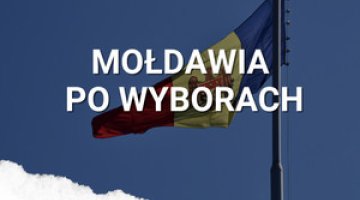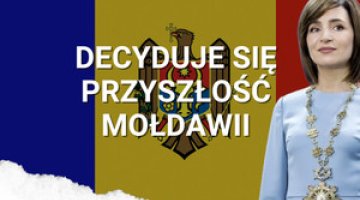Moldovan-Russian tensions
On 29 May, the government of Moldova designated five Russian diplomats as personae non gratae. This information was confirmed first by a spokesman from the Moldovan foreign ministry and then by Moldova’s Prime Minister Pavel Filip, who stated that the decision had been taken on the basis of information from the Moldovan secret service. No detailed official reasons for the authorities’ decision were given; nor has there been any official confirmation of which diplomats will be expelled. According to media reports, they will include the Russian military attaché Igor Dovbnia, his deputy Aleksandr Grudin and the first secretary of the embassy Rinat Anderzhanov. The government’s decision has been criticised by Moldova’s pro-Russian President Igor Dodon, who called it “a scandalous gesture towards a strategic partner, the Russian Federation”. In response, Russia expelled five employees of the Moldovan embassy in Moscow on 31 May.
Commentary
- It is probable that Chisinau’s decision will primarily affect Russian diplomats who had already been accused of working to the detriment of the Moldovan state. The deputy military attaché, Aleksandr Grudin, had been suspected of espionage on the territory of Moldova for at least a couple of months; in mid-March the public prosecutor’s office arrested a member of the Moldovan parliament, Iurie Bolboceanu, who had allegedly met Grudin regularly and passed him information in exchange for financial favours. The military attaché Igor Dovbnia, meanwhile, had been repeatedly criticised by the Moldovan authorities for his participation in the celebrations (including military ceremonies) organised by the authorities of the breakaway republic of Transnistria.
- The expulsion of five Russian diplomats is part of a series of actions the Moldovan government has taken over the last few months as a demonstration of its increased assertiveness towards Russia. It is worth mentioning at least three such events in this context. On 9 March, the President of the Moldovan Parliament and the Prime Minister protested to the Russian ambassador about the “clear harassment” by Russian border forces and security services of Moldovan government representatives who had been visiting Russia. The Moldovan authorities announced they would recommend that representatives of the parliament, government and administration refrain from official visits to Russia pending an investigation. Then, at the beginning of April, Moldova (which is able to generate only 20% of the energy it consumes) failed to renew its contract to purchase electricity from the Moldovan GRES power plant, which is located in breakaway Transnistria and is owned by the Russian energy company INTER RAO-UES. The Ukrainian company DTEK will be the country’s new supplier. Previously, for the last year, Moldovan GRES had been the main source of electricity for Moldova. Chisinau’s decision to stop buying energy from this plant means not only a financial loss for the Russian company, but it will also hit the budget of the breakaway Transnistrian republic. This budget largely relies on income from sales to the Russian power plant of gas which Transnistria has de facto acquired for free from Gazprom (Moldova incurs the debts for the gas consumed by the region). Moreover, on 31 May, after many months of preparation, the first Moldovan-Ukrainian customs and border control point was opened on the so-called Transnistrian section of the Moldovan-Ukrainian border (Pervomaysk-Kuchurgan). This will allow Moldova partial control over the flow of people and goods over its eastern border. This step has been criticised by both the authorities of the breakaway region and Russia, who see this as an attempt to isolate Transnistria and exert economic pressure on the region.
- Moldova’s decision to expel the Russian diplomats should be seen in the context of strengthening the international position of Vlad Plahotniuc, the oligarch and leader of the ruling Democratic Party, who de facto holds absolute power in the country. This action is intended to highlight the oligarch’s clearly pro-Western views, and weaken the allegations levelled by the opposition against him of his ‘geopolitical flexibility’ and his submission of Moldova’s foreign policy to foreign business interests. The publicity about the Russian diplomats’ anti-Moldovan espionage activities is strengthening the narrative being presented by the government in Chisinau about the growing threat which the Kremlin poses to Moldova’s pro-European course. Plahotniuc is using this argument to drum up support from Western countries (particularly the USA and Romania) and present himself as the only effective and determined defender of the European idea in Moldova. In this context, it should be noted that the decision to expel Russian diplomats came just a few days after Plahotniuc’s visit to the United States. The expulsion of the Russian diplomats, as well as other actions aimed at the interests of Russia, are also intended to show the Kremlin that, although he does not perform any official function in the country, Plahotniuc is the main decision-maker in Moldovan politics.
- The Russian diplomats’ expulsion is also a decision of domestic political importance. This move will build up Plahotniuc’s pro-Western image among the public, while at the same time diverting attention from the controversy accompanying the change of the country’s electoral system, from proportional to a majority or mixed system (which will increase Plahotniuc’s chances of retaining power after the elections scheduled for the end of 2018), which has been pushed for several months. The latest moves also strike at the policy of Moldova’s pro-Russian president Igor Dodon, who is trying to improve relations with Russia. The current situation also puts Dodon in an awkward position because it forces him to choose between defending diplomats who have been accused of spying for Russia and easing off from his unequivocally pro-Russian attitudes in the name of defending the interests of Moldova.
Kamil Całus
cooperation: Wojciech Górecki





